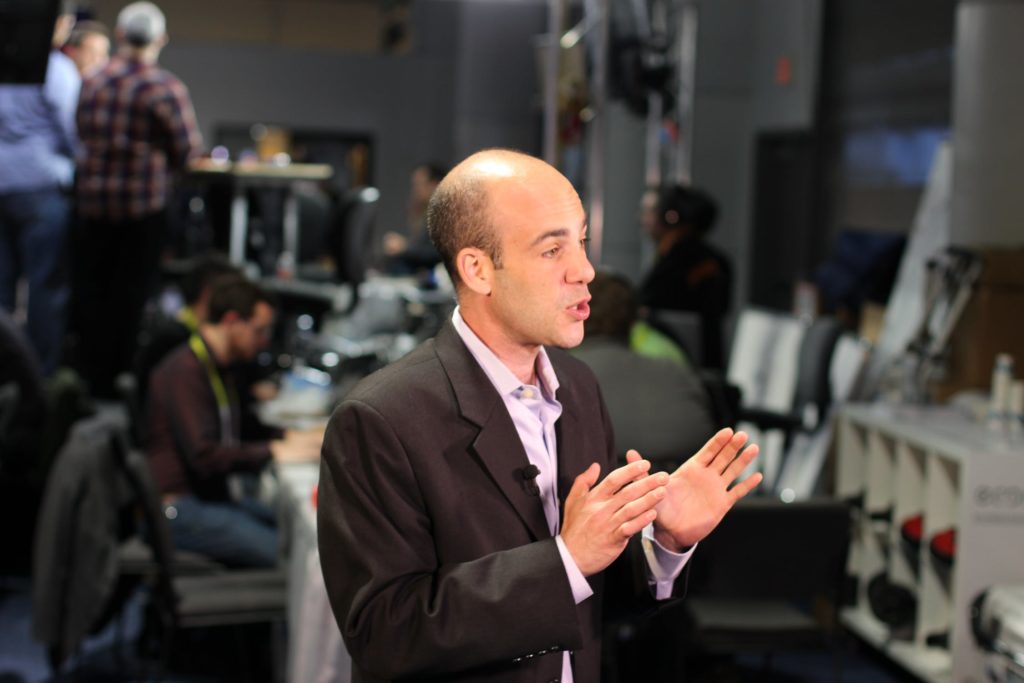
In recent years graduate education has been enjoying a big boom in popularity. More and more students are choosing to study for a higher degree, whether that’s immediately after completing their bachelor’s or several years later as a more mature student. It’s not difficult to see why. Holding a postgraduate degree in almost any subject can lead to better employment prospects, higher earnings, and even the chance for a new career in a different field.
Another reason that more people are going back to university now is the increased provision of part-time and online or distance learning for graduate education, meaning that you don’t need to quit your job or move halfway across the country to study. This has opened doors for anyone to boost their learning, regardless of your work or family situation.
Arguably the most well-known graduate degrees are master’s courses and PhDs; however, these are not the only options open to you. If you have an interest in the field of education – and particularly pursuing a leadership role within the industry – a Doctor of Education (EdD) degree could be the perfect choice for you.
Here’s an overview of the qualification and its advantages to help you decide.
What is a Doctor of Education (EdD)?
The EdD is an advanced, professional degree in education. It focuses on preparing students for educational leadership roles and is designed for those who are experienced educators or working professionals. It places emphasis on the relationship between theory and practice, meaning this qualification is perfect for those who wish to move into policy roles.
One of the consequences of this is that most students who take an EdD course are not fresh graduates or newly qualified teachers. Instead, they tend to be people with a lot of work experience under their belt already, who are hoping to move up to a position where they can lead, and effect change within their organization.
What is the difference between an EdD and a Ph.D. in Education?
Both a Doctor of Education (EdD) and a Doctor of Philosophy (Ph.D.) in Education are terminal degrees, which means that they are the highest degree awarded in this field. Where they differ is in their focus and in the types of careers they tend to lead to.
A Ph.D. is the more purely academic qualification of the two, focusing on research and becoming an expert in your chosen field. An EdD has a more practical emphasis that reaches beyond academia, preparing students to become educational leaders in all sorts of different sectors. Some of the career options for professionals who gain an EdD include:
- School principal
- Dean
- Provost
- University or college president
- Director of a research center
- Curriculum developer or specialist
- Development manager
- Educational lobbyist or advisor
- Chief learning officer
- Education consultant
- Education technology specialist
- Literacy program director
- And many, many more
The difference between the two programs will be evident in the research that you conduct on the course. In an EdD, there will be far more of an emphasis on practicality, and how your research can be used to solve a problem or have a positive influence on an organization or community.
Another important variation is in the study experience itself. An EdD tends to be shorter than a Ph.D., at around 2-3 years compared to 4-6. It can also be completed while you work, with more flexible, part-time, online, and distance learning options available (although there are many part-time PhDs on offer too). For example, these days, it’s perfectly possible to take an online doctorate in education with no GRE. This doesn’t mean that an EdD is easier, though – it still requires plenty of dedication, passion, and hard work.
The degree that is right for you will depend on your specific interests, goals, and career plans. If you’re still unsure, speak to advisors at the universities you’re looking at to get a clearer idea of the program that will best suit your needs and aspirations.
What can I expect when studying an EdD program?
A Doctor of Education program is a rigorous course. You will likely have a mixture of classroom-based taught modules (either in-person or online), as well as a research component culminating in the production of a written dissertation. Modules will vary from institution to institution, but some of the types of topics you can expect to cover include:
- Leading an organization
- Integrating educational theory into organizational innovation
- Ethical leadership
- Systems thinking
- The best approaches to applied research
- Strategic leadership
- Social change
- Research design
- Experiential learning
- Change management
- Fostering entrepreneurship in educational systems
- Transformative leadership
- Deciding among policy alternatives
- Technological proficiency within an organization
- Higher education finance
It’s worth checking the websites of any universities that you’re interested in attending to see the exact modules they offer, as these can differ quite a lot. This is a helpful way of narrowing down which institution and course are the best ones for you.
These days many colleges offer online EdD programs, which are ideal if you want to keep working while you study or if you have family commitments that prevent you from moving to a different location. Studying virtually doesn’t mean missing out, either. You’ll find the same level of student collaboration and staff communication available, and it also doesn’t rule out the possibility of getting financial aid.
What are the benefits of studying for an EdD?
Undertaking any sort of postgraduate qualification can bring huge advantages to those who put in the time and effort. For instance, you can improve both your salary prospects and employability by improving your qualifications. This is true whether you are looking to start a new career or move up within your current field. You can also meet people while you study who may prove to be valuable connections in the future, both professionally and socially – even if you are studying online rather than on campus.
In addition, a postgraduate qualification is a fantastic way to level up your transferable skills. It also provides the opportunity to deepen your knowledge in an area that interests you. In comparison to an undergraduate course, a postgraduate program allows for a far higher degree of specialization in relation to what you study – particularly when writing your final dissertation or conducting your own research.
When it comes to a Doctor of Education, you may find that the skills you learn, such as problem-solving, are immediately applicable in your current job role. The course can also greatly improve your leadership qualities, teach you how to implement change, and make a greater impact within your organization.
Am I too old to go back to school?
Definitely not! It’s never too late to obtain a new qualification, and being a mature student means you have a whole wealth of life experience to draw upon when studying. This is particularly true for a Doctor of Education degree, where the vast majority of students are working professionals rather than new graduates. In fact, most institutions require you to have several years’ work experience to get onto the course in the first place.
As an older student, you’re also more likely to have a clearer idea of exactly what you want to get out of the EdD program – which will be a big help, especially when deciding what topics to research or write about. If you’re nervous, you can always get started on the reading list before the semester begins to make sure you’re ready for your first class. Even if you haven’t written anything academic for a while, it won’t take long before you’re back in the swing of things. Plus, the university staff are always on hand for advice and support.
What next?
If reading this has inspired you to apply for a place on an EdD program, that’s great! The next step is to start researching institutions to decide which one you’d most like to attend. Some of the factors to think about are:
- The modules offered and how they match up with your personal interests
- The location
- Whether you’d prefer to study online or on-campus
- If you want to study full-time or part-time
- The cost of tuition and options for funding help
- Testimonials from previous students, and information on the careers they’ve gone on to have
- Staff profiles so you know who you’ll be learning from
- Entry requirements
- The ranking of the university and how it compares to others both in the US and worldwide
If possible, attend an open day – either on campus or virtually – and speak to staff and students about the course, the university, and any other questions you might have. Then once you’ve made your decision you can start preparing your application. You’ll probably need to write a personal essay, submit writing samples and evidence of your previous qualifications and work experience, plus obtain letters of recommendation attesting to your suitability for the program. Some universities may also conduct an interview as part of the process. Good luck!




